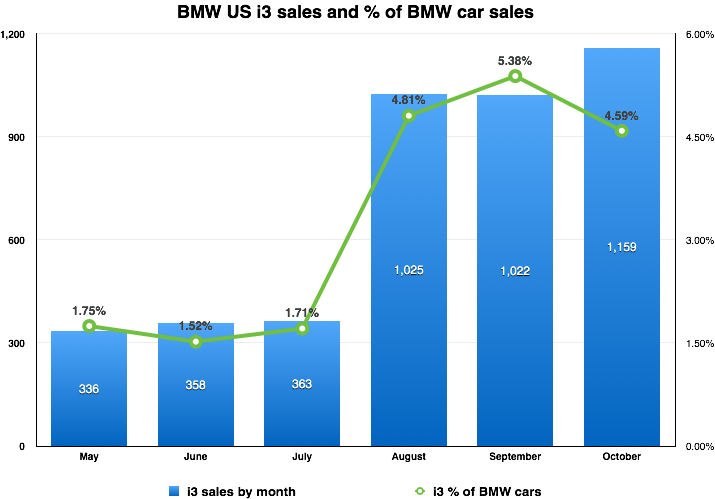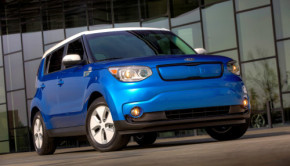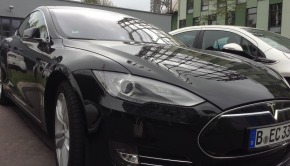BMW Trails Only Tesla In % of Car Sales That Are Electric (Charts)
November 7th, 2014 by Zachary Shahan
EV Obsession.
With Nissan being the world leader in electric car sales, and its CEO amd Chairman (Carlos Ghosn) being bullish on electric car sales for years, we often put it and Tesla at the top when it comes to electric car leadership. However, new data show that BMW is perhaps now #2 behind Tesla.
Looking at the past three months (August, September, and October), when BMW was producing more of the BMW i3 thanks to good consumer demand in the US, the BMW i3 accounted for almost 5% (4.93%) of BMW’s US car sales (as well as 3.85% of all BMW US sales).
Electric cars on the whole account for less than 1% of US car sales. Nissan has this year seen 2.1% of its car sales coming from the Nissan LEAF. Ford has seen 0.9% of its car sales coming from plug-in models (the Ford Fusion Energi, Ford C-Max Energi, and Ford Focus Electric). And GM has seen 0.7% of its sales come from plug-in cars. Of course, 100% of Tesla sales come from 100% electric cars.
Clearly, aside from Tesla, BMW is a step above the others. Even if you include the first three months of BMW i3 sales in the US, when things were just getting rolling, and as you can see in the chart above, sales were much lower than in the last three months, the i3 accounted for 2.3% of BMW car sales, as Green Car Reports.
Interestingly, Tesla’s Chief Designer, Jerome Guillen, recently said in an interview that, aside from Tesla, he is probably most impressed in BMW’s electric vehicle program.
Here’s a look at more BMW numbers, from BMW via Green Car Congress: “In October, the i3 outsold the 1/2 Series (672 units); the Z4 (198 units); and the 6 Series (740 units). The 3/4 Series is still dominant in US sales, with 13,621 units in October, followed by the 5 Series, with 4,914 units.”
Worldwide, BMW sold over 10,000 BMW i3 EVs in the first three quarters of 2014, as well as 341 BMW i8 PHEVs from June through September. Worldwide, the BMW i3 and BMW i8 only represent 0.8% of its car sales.
Source: EV Obsession. Reprinted with permission.
Keep up to date with all the hottest cleantech news by subscribing to our (free) cleantech newsletter, or keep an eye on sector-specific news by getting our (also free) solar energy newsletter, electric vehicle newsletter, or wind energy newsletter.
-
mike
-
Will E
-
Jenny Sommer
-
GCO
-
-
JamesWimberley
-
Jouni Valkonen
-


























